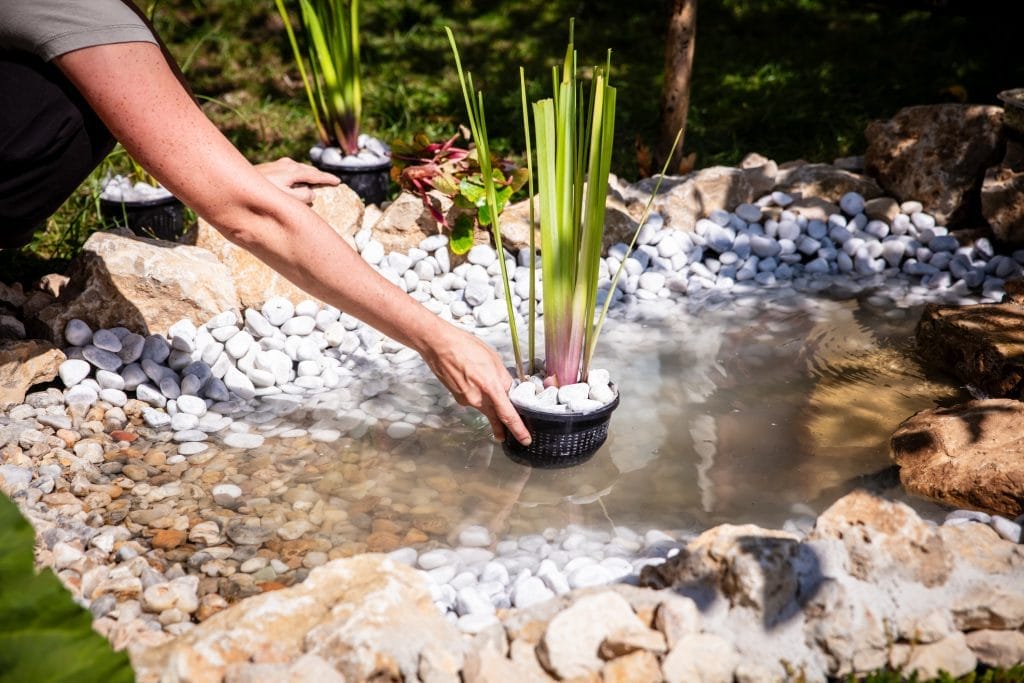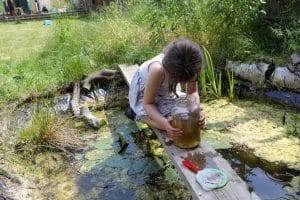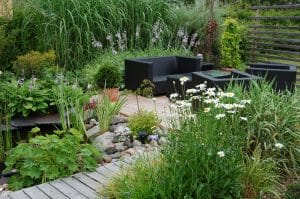
Aqua Pond Ltd: Expert Pond Maintenance Services from a Professional Contractor Near You
Ponds can be a beautiful addition to any garden, but they require regular care and attention to thrive.
Aqua Pond Ltd is a professional pond contractor company that provides expert pond maintenance services tailored to meet the specific needs of each client.
By choosing professionals like Aqua Pond Ltd, homeowners can ensure their ponds remain healthy and vibrant, enhancing the overall appeal of their outdoor spaces.

With a focus on maintaining pond ecosystems, Aqua Pond Ltd offers a range of services that include pond cleaning, water quality enhancement, and aquatic plant management.
Their team understands the importance of a well-maintained pond and uses expert techniques to prevent common issues such as algae growth and water clarity problems.
Engaging a knowledgeable contractor can save time and effort while promoting a thriving aquatic environment.

Residents in the area seeking reliable pond care will find Aqua Pond Ltd to be a trusted partner.
Their commitment to quality service and customer satisfaction makes them an ideal choice for anyone looking to improve their pond’s health and appearance.
Key Takeaways
- Aqua Pond Ltd provides expert pond maintenance services.
- Professional care enhances pond health and aesthetics.
- Regular maintenance prevents common pond issues.
Why Choose Professional Pond Contractors

Selecting professional pond contractors provides assurance that ponds are well-maintained and healthy.
Their expertise ensures quality care, leading to long-lasting results. Regular maintenance is vital for keeping ponds clean, preventing issues from arising.
Expertise in Pond Care
Professional pond contractors possess specialised knowledge and experience in pond maintenance.
They understand the unique needs of different pond ecosystems.
From managing water quality to handling aquatic plants and fish, these experts know the best practices.
They use advanced tools and techniques that most homeowners might not have access to.
For instance, they often employ pond vacuums and skimmers to effectively remove debris. This helps prevent harmful substances from accumulating, which could damage the pond’s environment.
Additionally, professional contractors can identify potential problems early.
This proactive approach can save time and money in the long run. Their training allows them to apply safe and effective treatments tailored to specific pond needs.
Benefits of Regular Pond Maintenance
Regular maintenance by a professional pond contractor ensures a beautiful and healthy environment.
This routine includes cleaning, checking water quality, and managing plant growth.
When professionals handle these tasks, they promote a balanced ecosystem.
One major benefit is that it saves time for pond owners.
Maintaining a pond can be messy and time-consuming. A contractor can manage these responsibilities efficiently.
Furthermore, consistent maintenance helps avoid costly repairs in the future.
Harmful conditions, such as ammonia spikes, can be prevented with proper upkeep.
Engaging a professional contractor enhances the overall aesthetic appeal of the pond.
A well-maintained pond can be a focal point in gardens, attracting wildlife and creating a serene atmosphere.
Choosing experts for this job ensures peace of mind and lasting enjoyment of the pond space.
Understanding Pond Ecosystems

Pond ecosystems are complex environments that rely on the interaction of various components.
Key elements such as water circulation and beneficial bacteria play critical roles in maintaining ecological balance.
Biological Balance and Water Circulation
Biological balance in a pond ensures that different species coexist without dominating the ecosystem. This balance includes plants, fish, and microorganisms.
Water circulation is vital for distributing nutrients and oxygen throughout the pond.
Factors Affecting Water Circulation:
- Wind Movement: Helps surface water mix, promoting oxygen exchange.
- Temperature Changes: Warmer water rises while cooler water sinks, creating currents.
- Inlet and Outlet Structures: Man-made features can influence flow patterns.
Good water circulation aids in preventing stagnation, which can lead to algae blooms and other issues.
Properly circulating water helps to maintain clarity and health in the pond.
Importance of Beneficial Bacteria
Beneficial bacteria are essential for breaking down organic matter in ponds.
They convert waste into forms that aquatic plants can use, fostering a healthier ecosystem.
Roles of Beneficial Bacteria:
- Nutrient Cycling: They help recycle nutrients, making them available for plants.
- Decomposition: Break down dead organic material, reducing muck build-up.
- Water Quality Improvement: They assist in maintaining clear water by consuming excess nutrients.
Without these bacteria, ponds may experience problems like poor water quality and overpowering algae growth.
It is important to encourage a healthy population of beneficial bacteria for a thriving pond ecosystem.
Pond Installation Services

Pond installation is a crucial step in creating a beautiful and functional outdoor space. It involves proper planning, design, and the right setup of pumps and filters to ensure a healthy aquatic environment.
Planning and Design
Effective pond installation starts with careful planning and design. This phase assesses the site’s location, size, and purpose of the pond.
Key considerations include:
- Pond Size: Determining how large the pond should be based on available space and desired features.
- Depth and Shape: Selecting the right depth is crucial for fish survival, especially during winter. Irregular shapes can enhance aesthetics and support diverse habitats.
It’s also essential to consider the ecosystem, ensuring adequate sunlight and shade, as well as surrounding vegetation.
Collaborating with experts can help create a balanced design that meets personal preferences while promoting biodiversity.
Pump and Filter Setup
The installation of pumps and filters is vital for maintaining a clean and healthy pond.
Proper pump installation ensures adequate water circulation, which is key for oxygen levels.
Critical aspects include:
- Filter Size: Choosing a filter that is appropriately sized for the pond’s volume will prevent excessive debris and algae growth. The filter should be capable of handling the pond’s capacity.
- Pump Type: Selecting the right type of pump depends on the pond’s design and desired features, such as waterfalls or fountains.
A well-planned setup significantly enhances water quality, contributing to a thriving aquatic ecosystem. Regular maintenance of these systems is also essential to ensure long-term functionality.
Pond Cleaning and Maintenance
Proper pond cleaning and maintenance are essential for a healthy aquatic environment. Regular attention helps control algae growth, maintains water quality, and enhances the overall beauty of the pond.
Routine Pond Cleaning
Routine pond cleaning is vital for maintaining a healthy ecosystem.
This process typically involves the removal of debris, including leaves, twigs, and any organic matter that may have fallen into the pond.
To effectively clean a pond, using specialised equipment such as a pond vacuum or skimmer is recommended.
These tools help clear surface debris and prevent the accumulation of harmful materials at the bottom.
Pond cleaning services often suggest a cleaning schedule based on the pond’s size and its specific conditions.
Typically, homeowners should aim for a thorough cleaning every six months.
This routine cleaning helps prevent issues such as excess nutrient build-up, which can lead to algae growth.
Addressing Algae Blooms
Algae blooms can quickly turn a beautiful pond into a murky water body if not addressed promptly.
Two common types are planktonic and string algae.
Planktonic algae often appear as green water, while string algae can form long, green strands that cling to surfaces.
To manage these blooms, it’s essential to balance nutrient levels in the water. Reducing excess nutrients, often caused by decaying organic matter, is key.
Implementing aeration can also help by improving water circulation.
Adding beneficial bacteria products can promote the breakdown of organic materials, thus helping to clear excess nutrients.
Regular monitoring of water quality is also important.
Testing for ammonia, nitrate, and phosphate levels can help identify problems before they escalate.
Seasonal Maintenance Tips
Seasonal maintenance is crucial for the health of a pond throughout the year.
In spring, focus on removing any debris that has accumulated over winter.
It’s also a good time to inspect equipment, such as pumps and filters, ensuring they are functioning correctly.
During the summer, algae control should be a priority.
Regularly check for early signs of algae blooms and take action quickly. Adding aquatic plants can help compete with algae for nutrients.
As autumn approaches, prepare the pond for winter by trimming back plants and removing fallen leaves.
Finally, during winter, if possible, keep a small area of the pond free of ice to allow for gas exchange.
This practice ensures a stable environment for any fish and beneficial organisms.
Enhancing Water Quality
Maintaining high water quality is essential for a healthy pond environment.
Two key aspects are managing harmful toxins like ammonia and using natural treatments that benefit the ecosystem.
Dealing with Ammonia and Other Toxins
Ammonia can accumulate in ponds and cause harm to aquatic life. It often stems from fish waste, decaying organic matter, and overfeeding.
Regular testing of ammonia levels is crucial. Treatments like super activated filter carbon can effectively remove ammonia and other toxins from the water.
Using products like Microbe Lift introduces beneficial bacteria that help break down organic waste, thereby reducing ammonia levels.
Regular pond cleaning and maintenance also play a significant role in preventing toxin build-up.
Incorporating a pond vacuum can help eliminate debris from the bottom, improving overall water quality.
Natural Treatments for a Healthy Pond
Natural methods can significantly enhance pond water quality. Organic barley straw is one such method. When decomposed, it releases substances that naturally combat algae growth, which can otherwise cloud water.
Moreover, balancing the pond ecosystem is essential. Using products that promote eco-balance can enhance biodiversity.
These products often introduce beneficial microorganisms that help maintain clarity and improve overall health.
Regular maintenance, including seasonal clean-ups, allows these natural treatments to work effectively and supports a thriving aquatic environment.
Filter Systems and Water Treatments
Effective pond maintenance relies heavily on the right filtration systems and water treatments. Proper filtration ensures clean water, enhances aesthetic appeal, and supports a healthy ecosystem. Understanding how to choose and implement these systems is essential for any pond owner.
Choosing the Right Filtration System
Selecting the right filtration system is crucial for maintaining pond health.
There are several types of filters available, including mechanical, biological, and UV filters.
Mechanical filters remove debris and particles from the water.
Biological filters contain beneficial bacteria that break down toxins, promoting a thriving environment for fish and plants.
UV filters use ultraviolet light to kill harmful algae and bacteria, helping to clarify the water.
Before making a decision, pond owners should consider the size of their pond, the fish load, and the types of plants present.
A well-sized filter system will keep the water clean and reduce the need for chemical treatments, leading to a healthier pond ecosystem.
Effective Microorganisms and Plant Filtration
Utilising effective microorganisms is vital in maintaining a natural pond balance.
These microorganisms, found in biological filters, help decompose organic waste. Their action results in cleaner water and reduces harmful substances.
Incorporating plant filtration is another beneficial strategy.
Aquatic plants absorb excess nutrients, which can help prevent algae blooms.
Common plants that assist in filtration include water lilies and cattails, which provide habitats for beneficial organisms.
Combining microorganisms and aquatic plants creates a robust filtration system. This approach not only improves water clarity but also supports biodiversity, ensuring a vibrant ecosystem within the pond.
Aquatic Plant Management
Managing aquatic plants is crucial for maintaining a healthy pond ecosystem. This involves the careful selection of plants suited for the local environment and understanding their role in overall pond health. Proper care ensures that ponds remain clean and vibrant.
Selection and Care of Aquatic Plants
Selecting the right aquatic plants depends on the pond’s environment. Some plants thrive in full sun, while others prefer shade.
Including a mix of floating, submerged, and marginal plants can enhance biodiversity.
When planting, consider using native species as they typically require less maintenance and support local wildlife.
They help establish a balanced ecosystem, reducing algae growth and stabilising the pond’s bottom.
Care involves monitoring plant health and controlling growth.
Regularly removing dead leaves and debris prevents decay and maintains water quality.
Additionally, using organic barley straw can help manage algae while providing nutrients.
Role of Plants in Pond Health
Aquatic plants play a vital role in the health of a pond.
They contribute to oxygen production through photosynthesis, which is essential for fish and other aquatic life.
Plants also provide habitat and breeding grounds for various organisms.
Moreover, they aid in water clarity by absorbing excess nutrients that might otherwise lead to algal blooms.
By stabilising the soil, plants prevent erosion and help filter runoff entering the pond.
Establishing a variety of aquatic plants can effectively manage the ecosystem. This promotes biodiversity and creates a balanced habitat, ensuring the pond remains a thriving environment for all its inhabitants.
Managing Sunlight Exposure
Sunlight plays a crucial role in the health of a pond ecosystem. The right balance of light can benefit aquatic life, but excessive exposure can lead to problems like algae blooms and poor water quality. Understanding how to manage sunlight effectively is important for maintaining a healthy pond environment.
Effects of Full Sun on Pond Ecosystems
Full sun can have several negative effects on pond ecosystems.
Prolonged exposure to direct sunlight raises water temperatures. Warmer water holds less oxygen, which is vital for fish and other aquatic organisms.
Algae thrive in sunny conditions, often leading to excessive growth. This blooms can deplete oxygen in the water at night, harming the fish.
Additionally, decaying algae creates a further decline in water quality.
With these potential issues in mind, it is clear that managing sunlight is essential.
Strategies must be put in place to ensure aquatic life remains protected and the ecosystem balanced.
Shade Solutions and Plant Cover
Introducing shade into a pond environment is an effective way to manage sunlight exposure.
Planting marginal vegetation around the pond can create natural shade. These plants not only provide cover but also contribute positively to the ecosystem.
Using trees or large shrubs nearby can also yield benefits. They block some sun while offering habitat for wildlife.
However, it is important to maintain these plants to prevent fallen leaves from accumulating, which can lead to further complications.
Another consideration is ornamental shade structures.
These can provide consistent cover while enhancing the aesthetic appeal of the pond area.
Implementing a combination of these strategies can help create a balanced environment conducive to aquatic health.
Protecting Your Pond from Tap Water Chemicals
Tap water can introduce harmful chemicals like chlorine and chloramine into ponds. These substances can disrupt the water quality, affecting fish and plants. Understanding their impact and learning safe ways to add fresh water is crucial for maintaining a healthy pond ecosystem.
The Impact of Chlorine and Chloramine
Chlorine is a common chemical found in cold tap water, used to disinfect drinking water. While beneficial for human consumption, it can be harmful to pond inhabitants.
Chlorine can irritate fish gills, reducing their ability to breathe properly.
Chloramine, a compound formed when chlorine and ammonia combine, poses similar risks. It is more stable than chlorine and does not evaporate quickly.
Therefore, it remains in the water longer, making it more challenging to manage.
Both chemicals can disrupt the beneficial bacteria essential for pond health and degrade overall water quality.
Safely Introducing Fresh Water
When topping off a pond with cold tap water, it is vital to neutralise these chemicals.
Adding a water conditioner can effectively remove chlorine and chloramine before they enter the pond.
One method is to fill a container with tap water and add the appropriate amount of conditioner according to the instructions.
This process ensures that fish and plants are not harmed.
Another option includes letting the tap water sit for 24 hours to allow some chlorine to dissipate, though this method is less effective against chloramine.
Regular testing of pond water can help monitor chemical levels and ensure a balanced ecosystem.
Pond Services Available Near You
Aqua Pond Ltd offers a variety of pond services tailored to meet specific needs. These services include customised solutions and ongoing support, ensuring every pond remains healthy and attractive.
Customised Pond Solutions
Aqua Pond Ltd provides tailored pond services to fit the unique requirements of each client.
Aqua Pond Ltd offers a variety of pond services tailored to meet specific needs. These services include customised solutions and ongoing support, ensuring every pond remains healthy and attractive.
Services include water quality management, where experts analyse and adjust chemical balances to promote a healthy ecosystem.
Customers can also request algae control measures to keep ponds clear and attractive.
Seasonal clean-ups are part of the service, where debris and fallen leaves are removed to prevent decay.
Clients can expect a thorough consultation to discuss their specific needs.
The professionals ensure that each pond receives the attention it requires for peak performance.
Trusting Aqua Pond Ltd means working with experts who bring years of experience to every project.
Ongoing Support and Advice
To maintain a pond’s health, Aqua Pond Ltd offers ongoing support and advice tailored to each client’s needs.
This service includes regular maintenance visits, ensuring that any issues are addressed promptly.
Experts provide tips on seasonal tasks, such as how to prepare ponds for winter or enhance their appearance in summer.
Clients can receive insights on controlling algae growth and maintaining optimal fish and plant health.
Additionally, Aqua Pond Ltd uses effective products, such as those from Evolution Aqua, known for promoting crystal-clear water.
The ongoing relationship with clients allows for a deeper understanding of each pond, ensuring continuous care and improvement over time.



